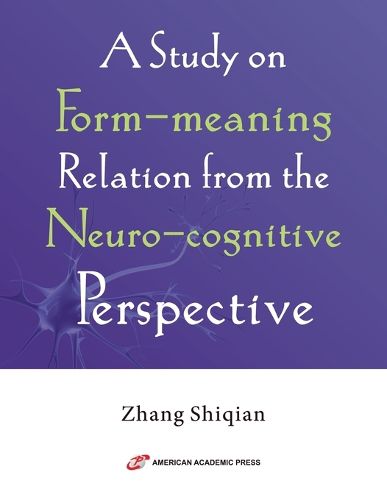Readings Newsletter
Become a Readings Member to make your shopping experience even easier.
Sign in or sign up for free!
You’re not far away from qualifying for FREE standard shipping within Australia
You’ve qualified for FREE standard shipping within Australia
The cart is loading…






This title is printed to order. This book may have been self-published. If so, we cannot guarantee the quality of the content. In the main most books will have gone through the editing process however some may not. We therefore suggest that you be aware of this before ordering this book. If in doubt check either the author or publisher’s details as we are unable to accept any returns unless they are faulty. Please contact us if you have any questions.
Under the perspective of the Embodied Language of Cognition (Glenberg, 1997; Barsalou, 1999; Anderson, 2003), this book proposes a theoretical framework (hypothesis): the form-meaning relation in language shall be a three-dimensional interactive relation between body (the sensory-motor system) - brain (the mental network of the experiential knowledge) - form (the language expression system), rather than be a two dimensional relation between meaning and form. The main objective of the present book is to test the feasibility of the "body-brain-form" approach, i.e., whether it can effectively explain the cognitive operation and the usage-distribution of the language system. Taking the obtaining event as an example, this book builds a corpus of obtaining verbs and constructions, and uses the "Body-Brain-Form" approach to explain the three-dimensional construal processes from the source of specific "meanings", i.e., the sensory-motor practices, to specific constructions, with brain experiential knowledge being the joint between the two. The quantitative analysis proves the rationality and accuracy of this approach in predicting the usage distribution of different obtaining constructions. Besides, the Cognitive Event Frame (Cheng, 2019, 2020) is also adopted to formulate the core and elaborated conceptual contents of different events, proving the efficiency and flexibility of this approach in formulizing the contents of the experiential knowledge network.
$9.00 standard shipping within Australia
FREE standard shipping within Australia for orders over $100.00
Express & International shipping calculated at checkout
This title is printed to order. This book may have been self-published. If so, we cannot guarantee the quality of the content. In the main most books will have gone through the editing process however some may not. We therefore suggest that you be aware of this before ordering this book. If in doubt check either the author or publisher’s details as we are unable to accept any returns unless they are faulty. Please contact us if you have any questions.
Under the perspective of the Embodied Language of Cognition (Glenberg, 1997; Barsalou, 1999; Anderson, 2003), this book proposes a theoretical framework (hypothesis): the form-meaning relation in language shall be a three-dimensional interactive relation between body (the sensory-motor system) - brain (the mental network of the experiential knowledge) - form (the language expression system), rather than be a two dimensional relation between meaning and form. The main objective of the present book is to test the feasibility of the "body-brain-form" approach, i.e., whether it can effectively explain the cognitive operation and the usage-distribution of the language system. Taking the obtaining event as an example, this book builds a corpus of obtaining verbs and constructions, and uses the "Body-Brain-Form" approach to explain the three-dimensional construal processes from the source of specific "meanings", i.e., the sensory-motor practices, to specific constructions, with brain experiential knowledge being the joint between the two. The quantitative analysis proves the rationality and accuracy of this approach in predicting the usage distribution of different obtaining constructions. Besides, the Cognitive Event Frame (Cheng, 2019, 2020) is also adopted to formulate the core and elaborated conceptual contents of different events, proving the efficiency and flexibility of this approach in formulizing the contents of the experiential knowledge network.